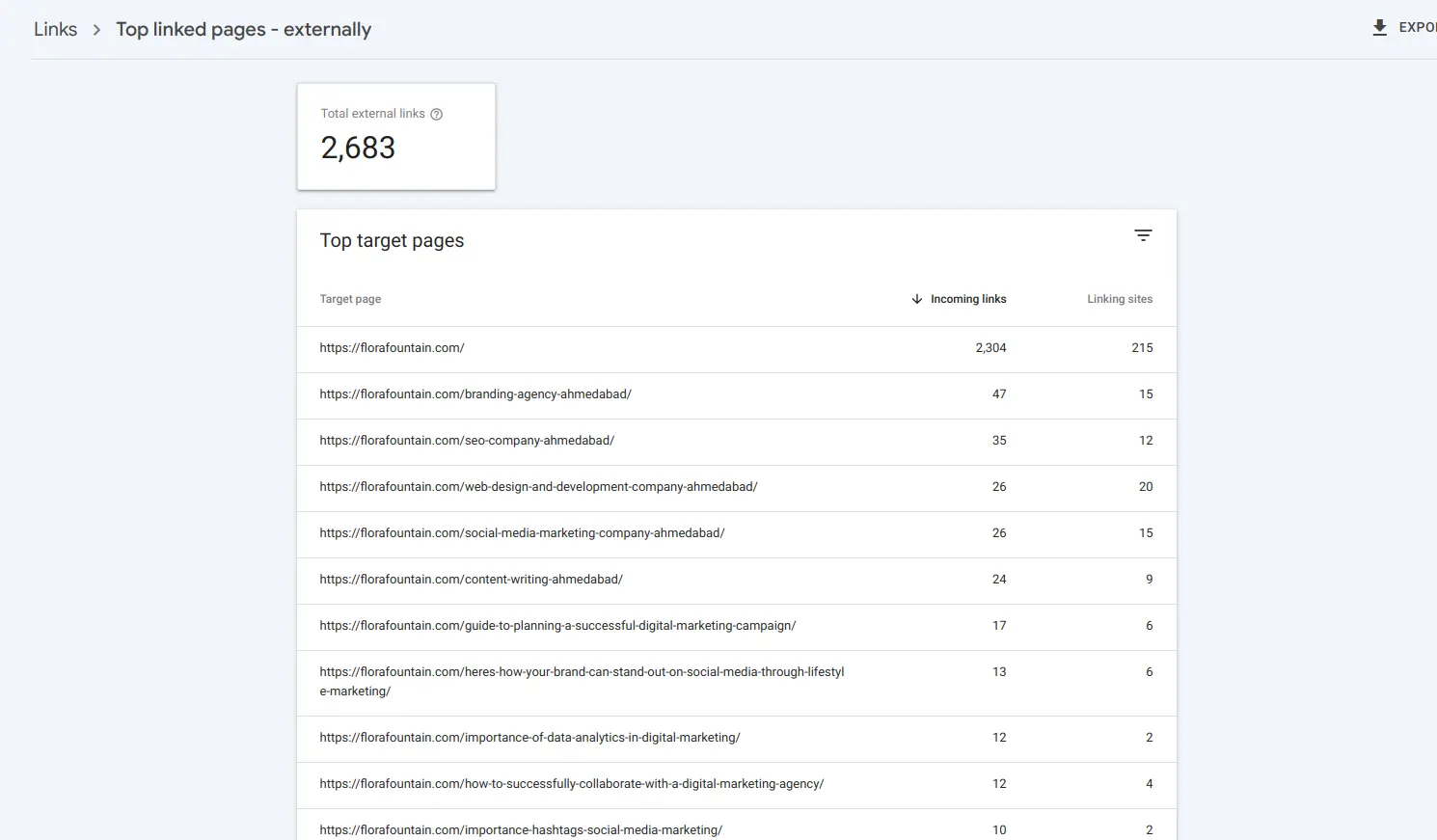
Imagine your website as your business’s virtual body. You wouldn’t wait until you’re feeling unwell to visit the doctor, right? You schedule regular checkups to ensure everything’s running smoothly. An SEO audit is exactly that for your website – a comprehensive examination that identifies areas for improvement and unlocks its full potential.
Now, you might be wondering, “Why should I do an SEO audit for my website? Things seem to be working well and alright.” This blog will reveal the reasons behind SEO audits and why they’re the secret weapon your website needs!
Table of Contents
- What Is An SEO Audit?
- 6 Reasons Why Your Website Needs An SEO Audit
- What is Included in A Website SEO Audit
- How to Get Started With An SEO Audit
- Conclusion
- Frequently Asked Questions
What Is An SEO Audit?
An SEO audit is a detailed analysis of your website that helps you understand how well it’s optimised for search engines like Google, Bing and Yahoo. Remember, these search engines are the gateways to the internet and if your website needs to speak their language, then potential customers simply won’t find you.
Here’s the thing: Google has a complex algorithm that decides which websites appear at the top of search results. An SEO audit helps you identify areas where your website might be falling short and provides a roadmap for improvement.
Think of SEO audits as your website’s monthly checkup, revealing insights that may be invisible to the naked eye. It’s like peering into the inner workings of your website’s health, ensuring it stays fit and fabulous.
6 Reasons Why Your Website Needs An SEO Audit
SEO Audit helps you do three things Identify, Analyse and Strategise. Let’s see how:
1. Find SEO weaknesses
An SEO audit acts like a website detective, uncovering hidden issues hindering your website’s performance. This can include technical issues like slow loading times, broken links and mobile-friendliness problems. It also looks into on-page SEO, identifying areas where your content and meta descriptions might not be optimised for relevant keywords.

2. Track the progress of keyword rank
Keyword ranking is the most important in SEO. An SEO audit provides a baseline for your current keyword rankings, allowing you to track your progress over time. This helps you measure the effectiveness of your SEO efforts and identify which keywords need further optimisation.

3. Link Analysis
Not all links are created equal. An SEO audit analyses your website’s backlink profile, identifying the quality and quantity of links pointing to your site.
High-quality backlinks from reputable websites act like votes of confidence in the eyes of search engines and can significantly boost your website’s ranking.
4. Analyse competition
Knowledge is power, especially in the competitive world of online marketing. An SEO audit analyses your top competitors, revealing their SEO strategies, keyword usage and backlink profile. This allows you to identify areas where you can outrank them and develop a competitive SEO strategy.
5. Helps you create an action plan
An SEO audit isn’t just about identifying problems; it’s about providing solutions. Based on the audit findings, a clear and actionable plan is created, outlining specific steps you can take to improve your website’s SEO. Contact an SEO Company in Ahmedabad, they can not only conduct a thorough SEO audit but also help you create a practical action plan based on your specific needs and industry.
6. Search engine optimisation
The action plan developed from your SEO audit will involve a multi-pronged approach to optimise your website’s content, code and pages. This might include content optimisation, code optimisation, on-page optimisation and technical SEO.
Ultimately, these optimisations work together to improve your website’s ranking in search results. The higher you rank, the more likely potential customers are to discover your amazing products or services.
What is Included in A Website SEO Audit
SEO audit goes beyond a surface examination, delving deep into the technical aspects, content quality and overall user experience. Here’s a breakdown of the key areas a website SEO audit typically covers:
1. Technical SEO audit
This is the foundation of any good SEO audit. It inspects the technical health of your website. Here are some key areas a technical SEO audit examines:
- Website speed: Search engines prioritise websites that load quickly. The audit analyses your website’s loading speed and identifies areas for improvement, such as image optimisation and code minification.
- Mobile-friendliness: With the majority of internet browsing happening on mobile devices, a mobile-friendly website is crucial. The audit checks if your website adapts seamlessly to different screen sizes and provides a smooth user experience for mobile users.
- Crawlability and indexability: Search engines need to be able to crawl and index your website’s content to display it in search results. The audit ensures your website structure is optimised for search engine crawlers and that there are no barriers preventing them from indexing your pages.
- Technical errors: Broken links, duplicate content and server errors can all negatively impact your website’s SEO performance. The audit identifies these technical glitches and provides recommendations for fixing them.
2. On-page SEO audit
- Keyword research and optimisation: The audit identifies relevant keywords that your target audience is searching for and analyses how effectively your content is optimized for those keywords.
- Content quality and relevance: The audit assesses the quality, depth and relevance of your website content. It ensures your content is informative and engaging and provides value to your target audience.
- Meta descriptions and title tags: These elements are crucial for grabbing attention in search results. The audit checks if your meta descriptions and title tags are compelling, keyword-rich and accurately reflect your page content.
- On-page optimisations: This includes analysing internal linking structure, image optimisation with alt text and user experience elements like clear navigation and headings.
3. Off-page SEO audit
- Backlink analysis: The audit analyses the quality and quantity of backlinks pointing to your website. High-quality backlinks from reputable websites can significantly boost your SEO score.
- Brand mentions: Even if not traditional backlinks, online mentions of your brand can also positively impact your website’s authority. The audit might check for brand mentions across the web and identify opportunities to leverage them for SEO benefits.
How to Get Started With An SEO Audit
So, you’re convinced an SEO audit is the secret weapon your website needs. But where do you even begin? Here’s a roadmap to get you started with your SEO audit journey:
1. DIY or Delegate? Choosing Your Audit Approach
There are two main ways to tackle an SEO audit:
- Do-It-Yourself (DIY): For the budget-conscious business owner, there are several free SEO audit tools available online such as Google Search Console and SEMrush. These tools offer a basic overview of your website’s health, identifying major issues like slow loading times and broken links. While a good starting point, they often lack the depth and detail of a professional audit.
- Hire a Digital Marketing Agency in Ahmedabad: For a more in-depth analysis, consider partnering with a 360-degree digital marketing agency in Ahmedabad. Their SEO team will look into the technical aspects of your website, analysing on-page optimisation, off-page backlinks and mobile-friendliness. They will also provide a personalised strategy to address your website’s specific needs and goals.
2. Setting Goals and Defining Success
Before diving headfirst into the audit, take a step back and define your goals. What do you hope to achieve with your SEO efforts? Is it increased website traffic, improved ranking for specific keywords or brand awareness? Having clear goals allows you to tailor your SEO audit and measure its success.
3. Gather Your Resources (If Going the DIY Route)
If you’re opting for the DIY approach, gather the tools you’ll need. Popular free SEO audit tools include Google Search Console, Ahrefs Webmaster Tools (limited free plan) and SEMrush (limited free plan).
4. Conduct the Audit (DIY or Professional)
Now for the fun part! If you’re going the DIY route, delve into your chosen SEO audit tool and follow its instructions. For a professional audit, your chosen SEO agency in Ahmedabad will take the reins, providing a comprehensive analysis.
5. Analyse the Findings and Develop an Action Plan
Once you have your audit results, it’s time to analyze the findings. Identify areas for improvement, prioritise them based on impact and difficulty and start formulating an action plan.
6. Take Action and Track Progress
Implement the recommendations outlined in your action plan. This might involve optimising content, building backlinks or improving website structure.
Conclusion
An SEO audit isn’t just a website checkup; it’s a treasure map leading to increased website traffic, improved ranking and ultimately, more customers. While free DIY options exist, a professional SEO audit by a digital marketing company in Ahmedabad offers an unparalleled level of detail and expertise. Don’t let your website go downhill on the internet. Contact us at hello@florafountain.com and schedule your SEO audit.



